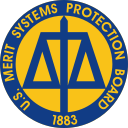When it comes to challenging a discriminatory or otherwise wrongful termination, employees typically turn to the Equal Employment Opportunity Commission (EEOC), the Occupational Safety and Health Administration, or a local employment agency, such as Texas Workforce Commission. For federal workers, there is an additional agency that assists: the United States Merit Systems Protection Board (MSPB). The work of the MSPB has come to light in recent months as the result of the dismissal of scores of federal employees.
What Is the MSPB?
Unless you’re a federal employee, you may not have heard of the MSPB. Originally established by Reorganization Plan No. 2 of 1978 (later codified by the Civil Service Reform Act of 1978), the MSPB “is an independent, quasi-judicial agency in the Executive branch that serves as the guardian of Federal merit systems.” Its mission is to safeguard the principles of the merit system and foster a workforce “free of Prohibited Personnel Practices.” The merit system principles can be found in 5 U.S.C. § 2301 and include standards like fair and equitable treatment, equal pay for work of equal value, and protection against arbitrary action. Similarly, prohibited personnel practices are codified in 5 U.S.C. § 2302 and proscribe personnel actions that, among other things, discriminate, coerce, or grant any preference. The primary function of the MSPB is to adjudicate employee appeals, but the MSPB also conducts merit system studies and reviews significant actions of the Office of Personnel Management and their effect on the merit system.
There are limitations, however, on the powers and responsibilities of the MSPB, as those duties fall to other agencies. For instance, in most circumstances, it cannot adjudicate discrimination complaints because those fall within the purview of the EEOC. Similarly, the MSPB cannot resolve labor disputes or complaints of unfair labor practices because those responsibilities belong to the Federal Labor Relations Authority. The MSPB also cannot provide advice on personnel-related matters, investigate claims of civil service law violations, or handle non-federal appeals.
What Can the MSPB Do?
The MSPB has both original and appellate jurisdiction. According to the 5 CFR § 1201.2, the MSPB’s original jurisdiction lays over certain actions brought by the Office of Special Counsel, requests from persons removed from the Senior Executive Service (SES), and actions against administrative law judges (ALJ). Its appellate jurisdiction, set out in 5 CFR §1201.3, is over the following: adverse actions, retirement appeals, termination of probationary employment, restoration to employment following recovery from a work-related injury, performance-based actions under chapter 43, reduction in force, employment practices appeal, denial of within-grade pay increase, suitability action, various actions involving the SES, actions related to placement or movement into an excepted service position without civil service protections, and miscellaneous restoration and reemployment matters.
What Are the Procedures for Filing an Appeal with the MSPB?
The procedure for filing an appeal with the MSPB can be found in 5 CFR §1201.22 and on its website. Appellants may file their appeals through the MSPB’s e-Appeal Online website or by downloading an appeal form and submitting it by traditional means, such as postal mail, fax, or commercial delivery. Emailed pleadings will not be accepted. According to 5 CFR § 1201.22(1), appeals must be filed no later than 30 days after the effective date of the action being appealed or 30 days after the date that the appellant received notice of the agency’s decision. If there is a mutual agreement to resolve the issue through alternative dispute resolution, the time limit is extended by 30 days.
Once an appeal is filed, the assigned ALJ issues an Acknowledgment Order to the appellant and the agency. The ALJ may also order additional pleadings to be submitted and may conduct status and pre-hearing conferences. Following any hearings or decision on the record, the ALJ will issue an initial decision, which will identify “all material issues of fact and law, summarize the evidence, resolve issues of credibility, and include the Administrative Judge's conclusions of law and his legal reasoning, as well as the authorities on which that reasoning rests.”
If an appellant is unhappy with the ALJ’s initial decision, they may file a petition for review with the Clerk of the MSPB or file a petition with the United States Court of Appeals for the Federal Circuit. All procedures for appellate cases before the MSPB can be found in 5 CFR, Part 1201, Subpart B. Procedures relating to petitions for review of initial decisions are available in 5 CFR, Part 1201, Subpart C.
Where Can Fired Federal Workers Get Help?
Rise Up: Federal Workers Legal Defense Network is offering access to free legal support and resources. The Network is comprised of members, lawyers, and volunteers from a variety of organizations like the AFL-CIO, National Employment Lawyers Association, and Partnership for Public Service. Federal workers who have recently been terminated from their positions or who have concerns about their employment can get started by following the instructions on the Legal Support for Federal Workers page. Qualified employees may be eligible for a one-hour consultation with an attorney.


